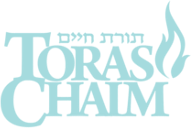Rosh Hashana 5778- Evening
תקעו בחדש שופר בכסה ליום חגינו כי חק לישראל הוא משפט לאלקי יעקב
Sound the Shofar at the moon’s renewal, at the appointed time for our festive day, for it is a decree for Israel, judgment day for the G-d of Yaakov.
We will recite this verse together in a few minutes, as we prepare for the first Amidah of Rosh Hashana, for our first opportunity to be עומד בפני המלך, to stand in G-d’s presence on this day of affirmation of His מלכות, of His Kingdom. This verse from the Psalms is laden with meaning, and teaches us a great deal about the character of Rosh Hashana.
I want to share with you a pair of insights into this passage derived from the teachings of Harav Yissachar Shlomo Teichtal, HYD. Rav Teichtal was a prominent Slovakian Rav who was ultimately murdered in the Holocaust, and was keenly aware of the painful upheavals – both internal and external – that the Jewish people were experiencing, yet with his unique perspective he saw in the Hell that had broken loose around him the seeds that would plant the Garden of Eden in Eretz Yisrael.
One of the central aspects of his work and writing was his perspective on Jews who were not perfect, who lived their lives differently than he and not in line with the tradition, sometimes even opposed to it. His beautiful and uplifting perspective on the imperfect Jew informs his insight into this verse and into the awesome Yom Tov we are about to begin.
Why does the verse attribute the judgment of Rosh Hashana to Elokei Yaakov, the G-d of Jacob? Why does the verse specifically associate Yaakov with this Day of Judgment?
Rav Teichtal shared two invaluable insights on this association, both derived from the Midrash Tehillim on Psalm 81, the source of this verse.
מדרש תהלים – מזמור פא
למנצח על הגתית לאסף הרנינו לאלהים עזנו הריעו לאלקי יעקב. זה שאמר הכתוב (במדבר כג, כא) לא הביט און ביעקב. מה ראה בלעם להזכיר ליעקב, ולא לאברהם ולא ליצחק. ראה שיצא פסולת מאברהם, ישמעאל וכל בני קטורה. וראה שיצא מיצחק עשו ואלופיו. אבל יעקב כולו בקדושה, שנאמר (בראשית מט, כח) כל אלה שבטי ישראל שנים עשר. הדא הוא דכתיב (שיר השירים ד, ז) כולך יפה רעיתי ומום אין בך. לפיכך לא הזכיר אלא יעקב לבדו. הוי, (במדבר כג, כא) לא הביט און ביעקב. אמר אסף, הואיל וכל האבות יש בהן פסולת ויעקב אין בו פסולת, איני מזכיר אלא יעקב לבדו. הריעו לאלהי יעקב.
Avraham experienced a crushing disappointment and loss in his life. His first child, Yishmael, had to be sent away and would not remain part of his true family, part of the eternal Jewish people. This was also the fate of the sons he had later in his life with Keturah. Avraham had many children, but many of them were lost to the future of our people.
Yitzchak had a similar experience. He had only two sons, twins, but one of them – the first, his personal favorite – would not remain part of the eternal Jewish people.
Only Yaakov had the distinction of מטתו שלימה, of all of his children remaining forever part of the Jewish people. In the words of the Sages, once we came to the children of Yaakov, a new rule applied: ישראל אף על פי שחטא ישראל הוא, even a Jew who sins will remain forever part of our people.
And so, we speak of this day as the Day of Judgment before the G-d of Yaakov. Yes, this is a Day of Judgment, and we are judged for wrongs and sins we have committed. But we are being judged from the inside. We are being judged by the G-d of Yaakov, the G-d Who will not let go of us – whatever our failings – Who evidently sees in us the inherent goodness that makes our bond unbreakable. The G-d of ישראל אע”פ שחטא ישראל הוא, of the truly eternal Jewish people.
That is one perspective.
The Midrash continues with another aspect of Yaakov that we affirm on this day, invoking another well know distinction between our Avos.
דבר אחר, למה הזכיר יעקב מכל האבות… אברהם יצחק ויעקב היו אוהביו של הקב”ה. אברהם קראו הר, שנאמר (בראשית כב, יד) בהר ה’ יראה. יצחק קראו שדה, שנאמר (שם כז, כז) ראה ריח בני כריח שדה. יעקב קרא אותו פלטין, שנאמר (שם כח, יז) אין זה כי אם בית אלהים. אמר לו הקב”ה, חייך, אתה קראת אותו בית עד שלא נבנה, על שמך אני קורא אותו, שנאמר (ישעיה ב, ג) לכו ונעלה אל הר ה’ ואל בית אלהי יעקב. וכן ירמיה אומר, (ירמיה ל, יח) כה אמר ה’ הנני שב שבות אהלי יעקב. ועוד אסף קישט את דבריו, ולא הכיר בתרועה אלא ליעקב, שנאמר הריעו לאלקי יעקב:
All three of our forefathers visited the site of the future Temple. Avraham described it as a mountain, Yitzchak as a field, and Yaakov as the House of G-d. Yaakov alone saw beyond what the place looked like here and now; Yaakov saw in it the potential, the possibilities, the vision of what could and would be there.
We too, today on Rosh Hashana, stand before the G-d of Yaakov. We stand here not as who we are but as who we can be, with a vision for being better, more perfect people. And we know that the G-d of Yaakov will recognize the value of that within us, and will see beyond where we are to where we aspire to be.
May we recognize our core goodness as the children of Yaakov, and may we fill ourselves on this day with a vision, with a picture of where we can be, of where we wish to be. כן יהי רצון.
